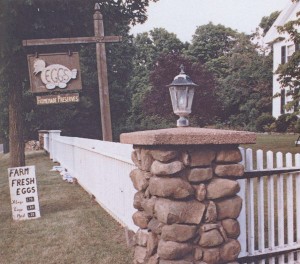Living on an Acre

Realistic expectations
Living on a few acres may be the ultimate American dream. But before you leave, best read this realistic advice produced by the US Department of Agriculture for the wave of young back-to-the-landers in the 1970s, updated and rewritten for 2010’s young homesteaders. Think of this as a wise uncle who’s seen a million folks try this and has a few words of caution — and encouragement — for you.
You’ll get an informed overview of the thousands of things you need to think about (water, sewage, markets, pests, machines, etc.), and the hundreds of options you have for using the land (flowers, a dude ranch, raising pets, a country B&B, speciality herbs, etc). It won’t tell you the right answers or how to do any of them. It serves more like a checklist of all the possibilities and drawbacks to help fit your dream to reality.
Most folks caught in the fever of this dream don’t want this kind of overview, they only want to know how many rows of beans to plant and the plans for a chicken coop, in one book. If you do try to live on a few acres, you’ll need tons of how-to guides, videos, and forums; I know of no single source that can give sufficient details for the myriad tasks needed.
The key to successfully living on a few acres is not doing all the jobs right, but selecting the right jobs to do. This earnest Wikipedia-ish tome is an aid to that meta-job.
07/14/13Excerpt
Leasing machinery or hiring custom operators are alternatives to owning farm equipment. In some cases custom operators can complete the work faster and cheaper than you can. This is especially true when you have only a few acres and specialized machines are needed. When considering hiring a custom operator, talk to other people who have used his services. Waiting for a custom operator to arrive can be expensive if the crops are not planted or harvested at the optimum time. Timeliness is important when you compare leasing equipment, owning equipment, or hiring a custom operator.
Bob and Peg Cremin have devoted their retirement years to a small egg farm at the edge of a residential neighborhood in Wallingford Connecticut. Their handmade signs tempt passing cars.
Living on an Acre U.S. Department. of Agriculture 2010, 336 pages $12








